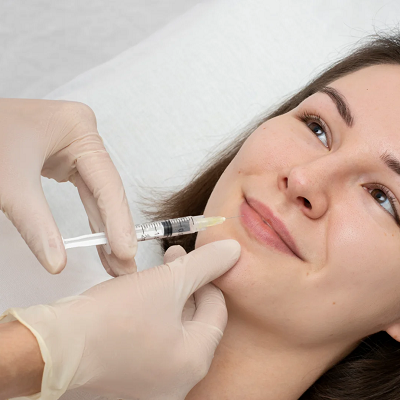
Glutathione is the “master antioxidant,” hence it is crucial for the body’s defense system, capacity to detoxify, and protection against oxidative stress. The liver naturally produces it; the degree of it in the body relies on several factors including diet, lifestyle, and health. Moreover, fasting may increase glutathione levels and improve overall health. However, How Does Fasting Affect Glutathione Levels in The Body? Read this blog to understand it completely.
What is Glutathione?
Three amino acids make up it: glycine, cysteine, and glutamine. The body exhibits two forms for it: oxidized (GSSG) and reduced (GSH). Eliminating harmful free radicals is really crucial. Its primary purposes are to clear the liver, strengthen the immune system, and reduce toxic stress from destroying cells. Good health depends on your good antioxidants levels, hence certain factors, like fasting, may have a significant impact on them.
How Does Fasting Affect Glutathione Levels in The Body?
There are many ways in which Does Fasting Affect Glutathione Levels in The Body. So, fasting causes a minor stress reaction in your body that sets off many adaptive processes to increase its production and usage.
Here are the ways fasting effects it:
Cellular Stress Response:
Fasting leads you to consume less calories, which creates minor oxidative stress in your body. Reversing this stress, the body generates more of it in response as a protection strategy. Moreover, it helps the body handle the additional effort it needs to take to clean itself up and protect itself from harmful damage during this period.
Autophagy Activation:
Fasting is well known to accelerate autophagy, a normal process wherein damaged cells are eliminated and replaced with fresh, healthy ones. Autophagy increases its synthesis, which aids in general body defensive mechanisms and helps eliminate harmful toxins.
Reduced Inflammation:
Fasting helps to reduce chronic inflammation, hence lowering antioxidants levels. By reducing inflammation, fasting helps the body retain and even increase its supplies. This helps it to recuperate from oxidative stress and fight off diseases.
Improved Insulin Sensitivity:
Fasting improves insulin sensitivity, which may assist to control blood sugar levels. Moreover, higher blood sugar and insulin resistance are well recognized to reduce antioxidants availability. Therefore, fasting enhances metabolic health, therefore enabling the body to retain more glutathione. Better overall health and less risk of chronic illnesses follow from this.
Benefits of Increased Glutathione Levels During Rapid Healing
Apart from boosting immune system performance and eliminating toxins, fasting increases glutathione levels. Some significant advantages are:
- Enhanced Detoxification: It is a key component of liver cleansing as it enables the body to eliminate harmful compounds like poisons, toxins, and heavy metals.
- Improved Skin Health: It is well-known to reduce reactive stress, a condition that may cause skin issues including aging, and to brighten skin.
- Boosted Immune System: More glutathione helps the immune system function, therefore enabling the body to fight off illnesses and heal quicker.
- Less Oxidative Stress: As its antioxidant action increases, it eliminates harmful free radicals thereby shielding cells from damage.
Ideal Candidates to Fast?
Most individuals benefit from fasting, however others may find it particularly beneficial in increasing their glutathione levels:
- Those who want to detoxify their bodies and improve the functioning of their livers might gain from fasting in order to increase it.
- Those with chronic inflammation may find that fasting helps reduce inflammatory indicators and strengthen antioxidant defenses.
- Those who engage in a lot of high-intensity exercise might find advantage in fasting as it reduces reactive stress and accelerates recovery.
Should You Fast to Increase Glutathione?
Because fasting aids the body’s natural cleaning mechanism. Hence, your body reacts rapidly by producing more antioxidants. Therefore, it helps insulin perform better and by better regulating inflammation. Each of these is vital for maintaining health. Fasting is a more dependable and long-term approach than drugs as it sets off the body’s natural mechanisms.
How Should One Care for Themselves After a Fast?
Following these guidelines can help you maintain the advantages after your fasting schedule ends:
- Keep sipping plenty of water and other beverages to assist in cleaning.
- Your best concentration should be on a nutrient-rich diet high in antioxidants, vitamins, and minerals that assist the body in producing antioxidants.
- Eat fewer processed and sugary meals; they will reduce sugar levels and induce oxidative stress.
Final Thoughts:
Raising glutathione levels in the body is mostly dependent on fasting, which has several health advantages including bodily cleaning, reduction of inflammation, and strengthening of the immune system. Because fasting increases the body’s natural antioxidant defenses, it is a long-term approach to improve its levels. Fasting may assist you reach your goals whether they be general health improvement, immune system increases, or bodily cleansing.
For the best advice and latest treatment options for your health and cosmetic issues, consult with the top-rated practitioners at Royal Cosmetic Surgery-PK.





